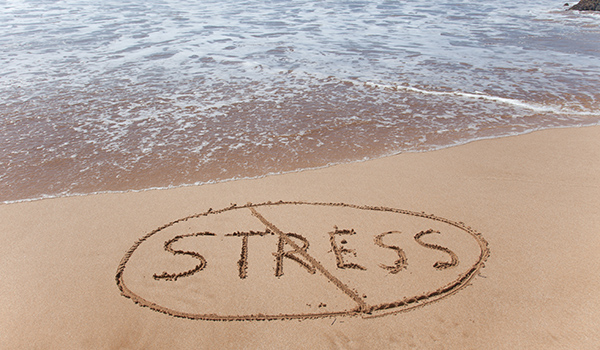
Scientifically, stress is an automatic response of your body that helps you get ready to flee from predatory situations. The likelihood of you being attacked by a bear or lion is however very low in the twenty-first century. Nonetheless, all of us are faced with daily stressors such as paying bills, taking care of children and performing adequately on our jobs. While these are not “scary” situations, they cause understandable stress.
A survey by the American Psychological Association in August of 2017, showed that overall, between 28% and 43% of Americans are stressed out by one thing or another. The most common sources of stress were concerns over rising healthcare costs, the health of the economy, political fears and fears surrounding high profile crimes. Whatever the stressor and whoever you are, there is no denying that stress is present in your life at least once a month.
It is unsettling and uncomfortable and in severe cases, makes you unproductive. So how do you effectively manage it? In this post, we will discuss eight stress management techniques you can employ during life’s stressful moments.
Identify what is causing the stress
The first step to dealing with stress is to find the source of the stress. This may involve sitting down quietly and taking note of what happened immediately before you began to feel stressed out.
Example: You have been feeling a lot of shoulder pain and tiredness recently. You lay awake at night unable to sleep and your heart cannot stop thumping. Assuming you have checked with a doctor to ensure that nothing is physically wrong with you, you could take an hour or so away from everything with a pen and paper and note when you began to feel this way.
Was it right after you lost a loved one? Was a new project handed to you at work? Have you been arguing more with your family members? Once you are able to pinpoint the precipitating event, you can begin on the path to recovery.
Remove yourself from the stressor
If a situation is making you angry and you begin to feel your body tense up, it is better to walk away from the situation. Walking away will ensure you do not react in a way you will regret later.
Rest your body
Stress and insomnia (the inability to fall or stay asleep for long periods) are strongly linked. Sleeplessness only produces more stress. It is therefore important that you get more sleep. A night-time routine where you prepare your body to go to sleep might be in order. Making it a point not to drink caffeinated drinks 4-6 hours before bed is another technique you could use to help your body get more rest. It is also advisable to put keep electronic devices such as your television, smartphone and tablets out of the bedroom so that there is nothing distracting you from fully falling asleep.
Take time to appreciate nature
There is a very good reason beautiful mountain ranges, crystal clear waterfalls and rolling hills in the countryside exist. Take a weekend trip into the wilderness. Disconnecting with our technologically advanced world and enjoying natural beauty is powerful when it comes to managing stress.
Listen to soothing music
Listening to music in the emergency room reduced anxiety levels significantly in one study. Take time to enjoy soothing music as you allow your mind and body to relax.
Aromatherapy
Studies like this one show that massages with aromatherapy oils can reduce stress and anxiety levels. While they can get a bit pricey, essential oils can be a good investment when it comes to reducing stress in your life.
Exercise
Exercise has long been known to release endorphins. Endorphins in turn interact with receptors in your brain to give you a euphoric feeling. Committing to thirty to sixty minutes of exercise per week is recommended for staying physically healthy. The added benefit here is that it can keep you mentally healthy as well.
Seek counseling
Going to see a counselor or psychologist should not make you feel bad. It is alright to take care of yourself. It is normal to see a medical doctor for annual check-ups. Seeing a trained professional for your mental health is no different. Most of the techniques we have discussed above will work for short-lived stress. When stress becomes such a common theme in your life that it interferes with your daily functioning, it really is time to see a professional who can give you the right tools to navigate out of the fog.
Stress management techniques
In this post we discussed eight different stress management techniques you can use to manage stress in your life. Our Health Risk Assessment tool can give you insight into health problems such as stress and recommend extra steps you can take to live free of it.

